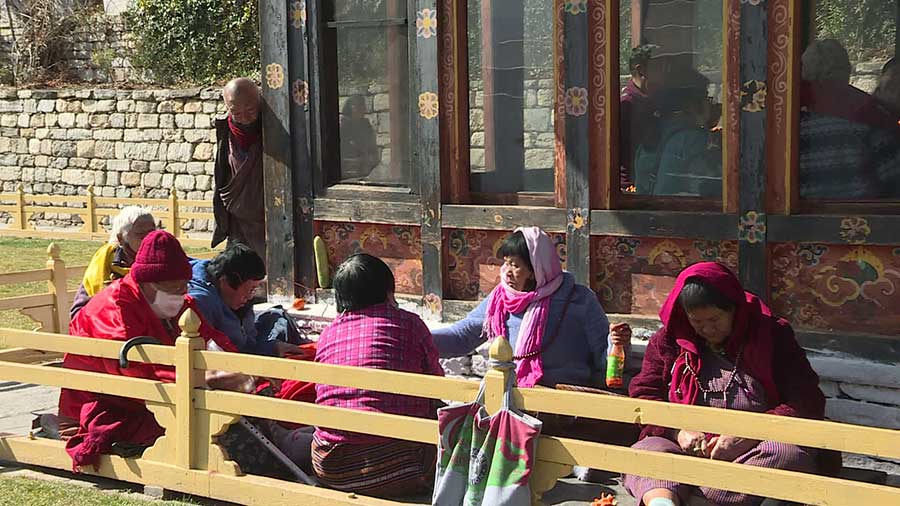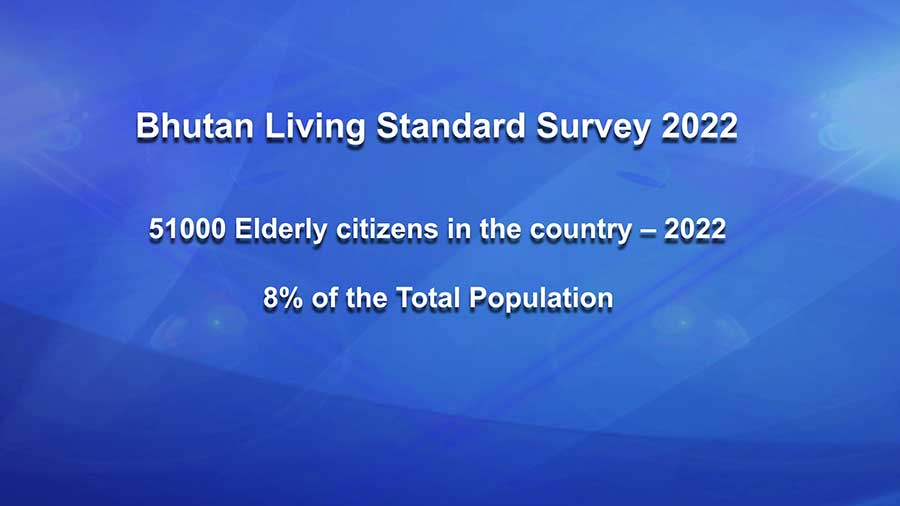
The Senior Citizen Policy which aims to look after the welfare of the elders in the country is almost ready. This is according to Health Minister Dechen Wangmo who says the final draft report is prepared and waiting to be submitted to the cabinet for approval. The Health Minister said this during the Press session yesterday.
 According to the 2022 Bhutan Living Standard Survey report, more than 51,000 of the total population are elders. This is almost eight per cent of the total population.
According to the 2022 Bhutan Living Standard Survey report, more than 51,000 of the total population are elders. This is almost eight per cent of the total population.
The Population Projection report by the National Statistics Bureau forecasts the elderly population to increase to more than 118,650 or 13.4 per cent by 2047. This, the report states would make the country an “aged” society.
But is the country conducive to the growing elderly population?
One area that needs attention is housing. According to the WHO Age-friendly Cities Framework, cities should have homes with age-friendly features such as elevators and wide passages to accommodate wheelchairs. The Framework also says that a home layout should not impede mobility, such as stairs and uneven floors. However, most buildings and apartments even in the capital city of Thimphu lack these facilities.
Another domain within the WHO’s Age-friendly city framework is transportation. Though the Thimphu city buses are a cheap and reliable mode of transport, with the service undergoing a digital transition, senior citizens find it hard to cope with the change.
Similarly, availing public services in the city is also challenging for the elderly with the introduction of technology to make services more systematic.
“When we use the bus, we don’t know how the bus system works because most of us are illiterate. That makes us feel like a fool sometimes. Sometimes we even fear for our lives when walking because of the busy traffic here,” said 72-year-old Tshering Dorji.
“Even when we go to hospitals, it is confusing for us. We have to take somebody with us. Otherwise, it is very confusing. And when we get prescription papers from doctors, we have no idea what to do with them. The hospital here is big unlike the hospitals back in our village,” said Choden.
“I have to often go to the hospital to get my medicines refilled, but I have to take my son with me. He is often busy most of the time with work, and I don’t know how to communicate with the people in the hospital. So, it is very challenging for me,” said Kadola who is 84 years old.
Most of these issues will hopefully be addressed when the Senior Citizen Policy comes through. According to the Health Minister, the final draft of the policy will be presented to the cabinet ministers and launched as soon as possible.
“The Senior Citizen Policy completed all its protocol. GNHC did quite an extensive consultation, went beyond traditional sectors, and also reached out to senior citizen organizations especially the Royal Society for Senior Citizens, we had a series of consultations with them. We also reached out to former ministers, and retired civil servants and then we also reached out to technical people who retired. So we really wanted to get a national perspective with regard to this policy,” said Health Minister Dechen Wangmo. “The policy is in its final draft waiting to be presented to the cabinet minister and then we would like to launch it as soon as possible.”
The Gross National Happiness Commission in collaboration with the Health Ministry and the Royal Society for Senior Citizens started work on formulating the National Policy for Senior Citizens in May last year. The policy aims to encourage productive ageing, health care and protection, safety and security, housing and age-friendly services, and welfare for senior citizens.
Karma Samten Wangda
Edited by Yeshi Gyaltshen







